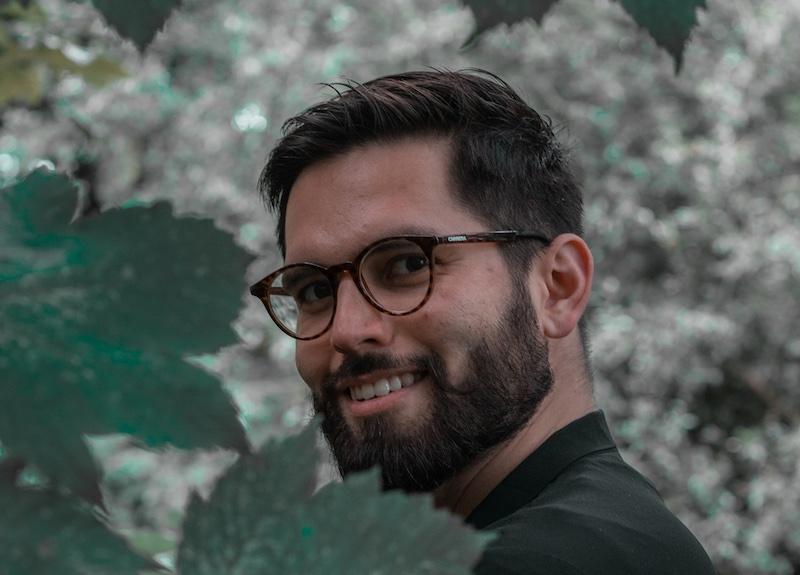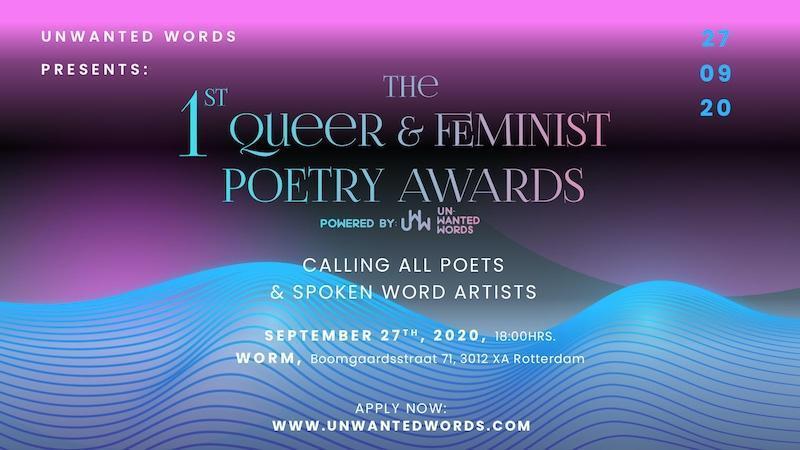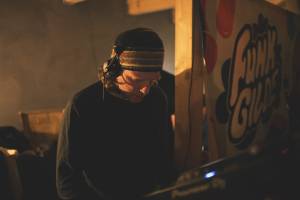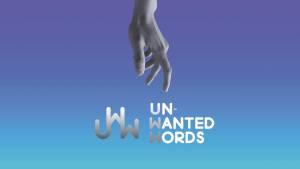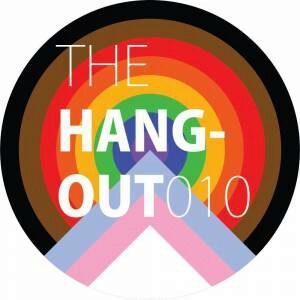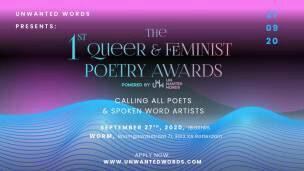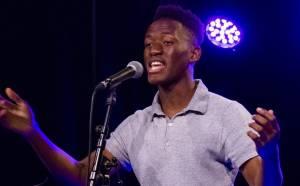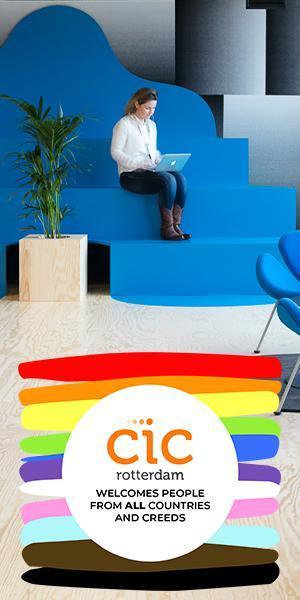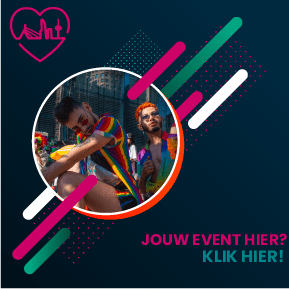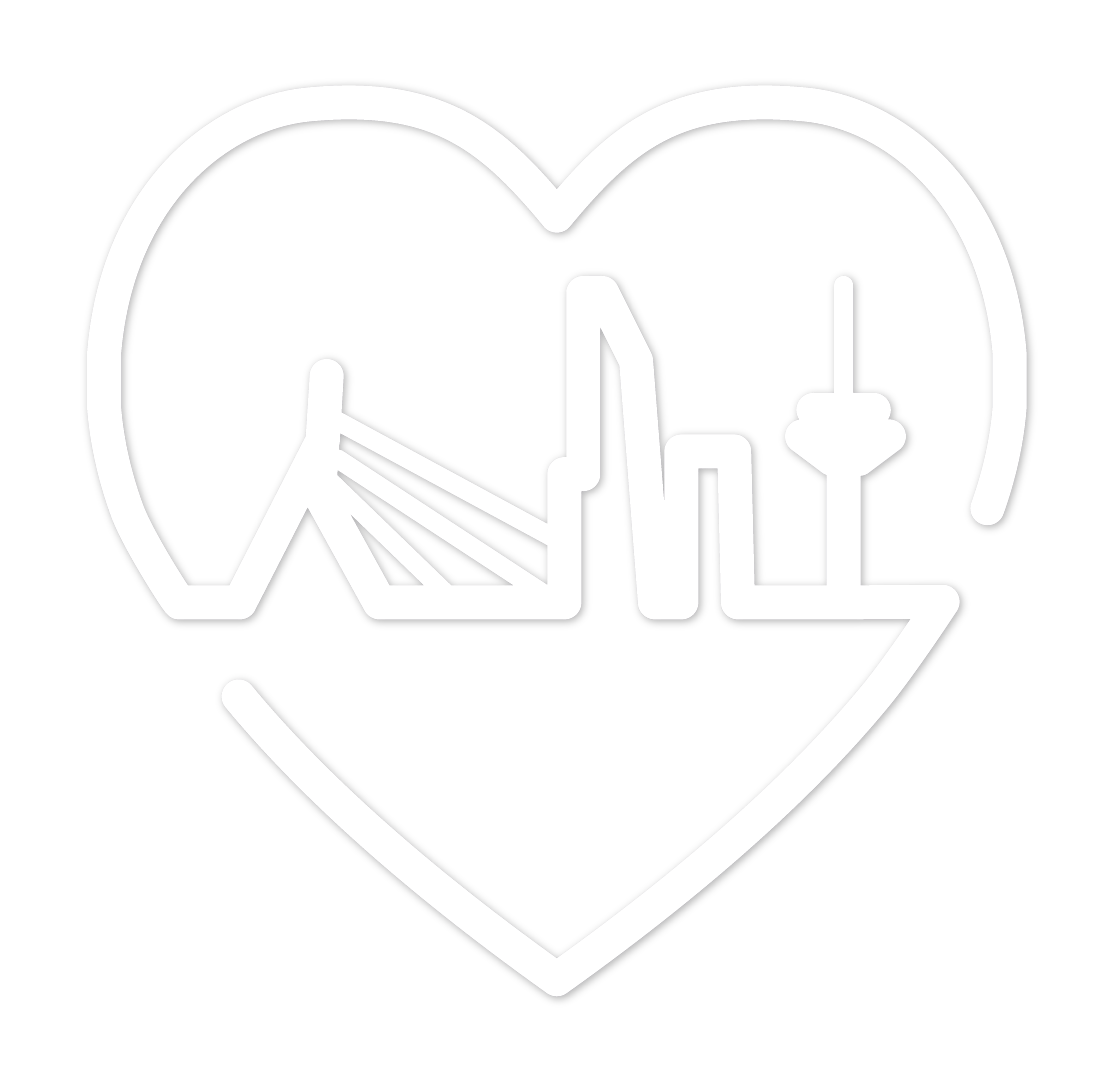Where did your passion for poetry and spoken word come from?
I started writing when I was 13/14 years old as a way of making sense out my feelings and thoughts and ultimately my queerness. Growing up I felt the need to be censored in order to portray the appearance of a good boy and keep the expectations of what I was supposed to be.
For me writing, and in this case poetry, was an outlet to start figuring out who I really was and what my true thoughts really were. When I was 15/16 I dove into theater and that led to a six-year career in theater and contemporary dance. The stage allowed me to get control over my voice, that was pretty limited and censored by that point. And in time I combined the theater part of expression with the writing and that became spoken word when I was 19/20. spoken word was for me a way to express that inner dialogue and discourse of what I wanted and needed to put out into the world.
"To me spoken word is the bastard child between poetry and theatre.
Can you explain the difference between poetry and spoken word?
Poetry and spoken word are pretty much siblings. Poetry is meant to be read and Spoken Word is meant to be alive, evoked and performed on stage. Spoken word is the word that is embodied by the context, by emotion for an audience. To me spoken word is the bastard child between poetry and theater.
So, spoken word is more in line with your performing arts background as well?
Oh definitely! To me art was a form, an outlet, to figure out who I am and who I am not. By portraying different stories and characters I slowly started carving my way into my own identity. With theater you inhabit other people’s stories. With poetry, with spoken word, I would write my own and perform my own stories and ultimately creating a common ground for me and my audience. Empathy that you can envoke with your audience.
Luis Bracamontes
Where do you draw your inspiration from that creates that common ground?
At the moment from my own queerness, but it wasn’t allways like that. I took several years actually to find my voice in this. And I got to a fork in the road: personally, artistically, professionally where I had to had to ask myself: “What am I putting out in the world? What is my stance?”. What things of value can I say and can provide something to my community. And when it came to my poetry and my writing I realized that I wanted to write from my queer experiences about my queer experiences. I also came to understand queerness as this radical form of playfulness of identity and gender. Because queerness is the approach you have towards your own gender identity and sexual orientation and the way you express that works beautifully with poetry. Poetry to me is an outlet where you can explore things that are difficult to explain with normal discourse. You can tap into more gentle forms of expression through poetry. A few lines can contain a universe of meaning. So, to me I write from my queerness.
You told me before that you are from Mexico. What did you notice when you arrived here and found your way in the spoken word scene in Rotterdam?
For starters I found a really active community here in Rotterdam. I think the cultural scene in Mexico is drastically different to the one in The Netherlands. In Mexico it is more an uphill battle against time, resources and institutions. In that sense I grow up in a scene where if you wanted something you had to fight for it and create projects from scratch out of nothing with no budget. Rotterdam has a pro-active energy of ‘yes, it is possible’. The beauty of the scene here is that there are spaces, there are institutions, there is talent and there is an audience. The interest was there. It was more the matter of tapping into a niche market that was yet to be explored.
"Rotterdam has a pro-active energy of ‘yes, it is possible’.
The beauty of the scene here is that there are spaces, there are institutions, there is talent and there is an audience."
Did your initiative, Unwanted Words, tap into that niche? And how did it all start?
I think we did, but as a team we didn’t expect Unwanted Words to get the reception it did. The intentional idea was for Unwanted Words to be a collective where queer writers and poets would get together, have fun together and write together. But very organically it evolved into a platform that facilitates safer spaces for queer artists and performers that only now get to explore their talents or are more experienced and want to show other sides of their stage performance and talent. So, in that sense I think that Unwanted Words responded to that latent need for more queer spaces for self-expression.
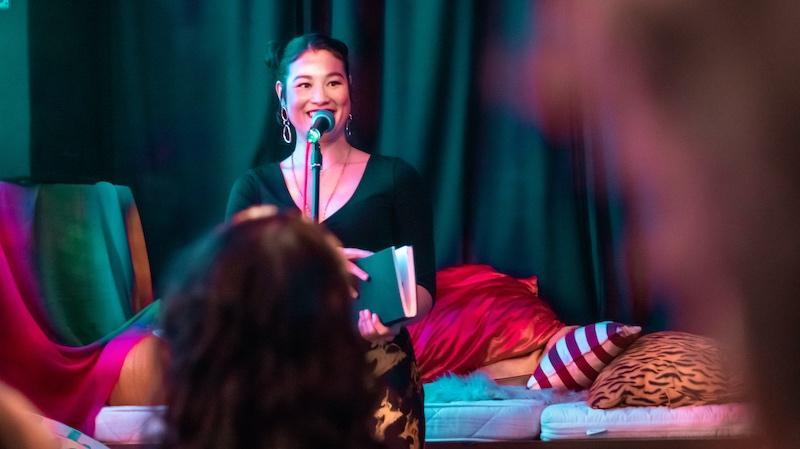
So, Unwanted Words is hosting the first Queer and Feminist Poetry Awards….
Yes! Actually, a really exciting next step. Recently we were triggered by the question: “What is the role of title, trophies and awards in this society?”. And the quick answer is that all of these things, as superficial as they may sound, truly open doors. There is raw talent, bpoc (black people of color) that may not have access to spaces and platforms to get awarded.
We want to create a platform for our niche communities to help them open doors. That is how the idea for our own award ceremony came to be. A ceremony led by the community, for the community, that celebrates and acknowledges the existing talents that are within these groups of people that don’t have access to the spotlight they might deserve. We couldn’t do all this without the help of initiatives and (grassroot) organizations like: The Hang-Out 010, Dona Daria, Awesome Foundation, Queer Rotterdam, WORM and Tender Center and many more.
Which categories are celebrated and what made you choose these?
We are having 6 categories. Of course, we have the categories Best Queer Performance and Best Feminist Performance. We are separating the two although they have everything to do with each other from an intersectional perspective. We wanted to highlight the queer perspective, but also give space to the feminist cisgender writers. On the other side we have de BIPOC Voice Award which is for black, indigenous, POC talent whose work represent the community or brings a message that needs to be heard. 2020 is a make or break year for this discourse of course with the Black Lives Matter movement, but also the recent feminist uprising in Latin America against violence towards women. Within this award all these voices are interconnected and there is a need for their stories to be seen and heard.
We have another award that is called Podium of the Year for any podium or event that caters to LGBTI+ and feminist performers. There are several events and spaces that are inclusive like us and we want to shine a light on their, mostly voluntary and unpaid, efforts for the community. The fifth category is Awesome Poet Award which is basically the people’s choice award. People that attend the event, also online, can vote for their favorite poet. Some winners will be chosen after showcase performances, like the Awesome Poet Award, and other categories are pre-selected. Lastly we have the Poet of the Year Award and this is meant to be the most prestigious of the night. This award goes to the poet or spoken word artist whose work has already made an impact and can be seen as a trailblazer within the community.
So, you have your own platform, community and awards that you are producing. What is there left to dream about for your queer poetry community?
One of our goals is to create a true network of creators and spoken word artists that can like a talent agency, inside and outside, connect. We want to be the connector for collaborations, opportunities and stages. And on the other side we also want to create an anthology that can capture the bodies of work of queer and feminist writers. This next to awards will help writers to get recognition by being published. There is much to dream about and to accomplish for queer and feminist voices to be heard in and around Rotterdam.
You can find more info about Unwanted Words via:
More about the 1st & Feminist Poetry Awards





